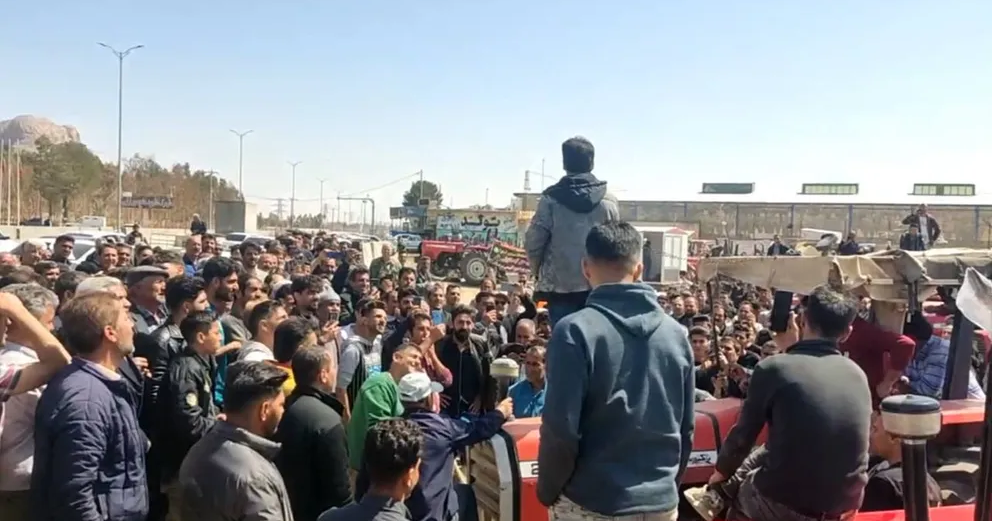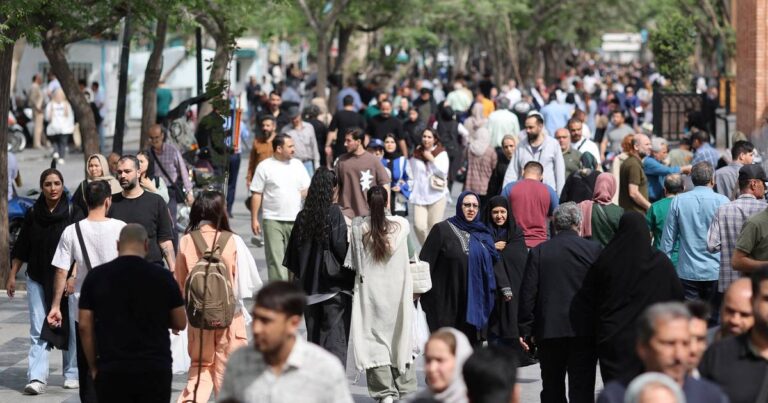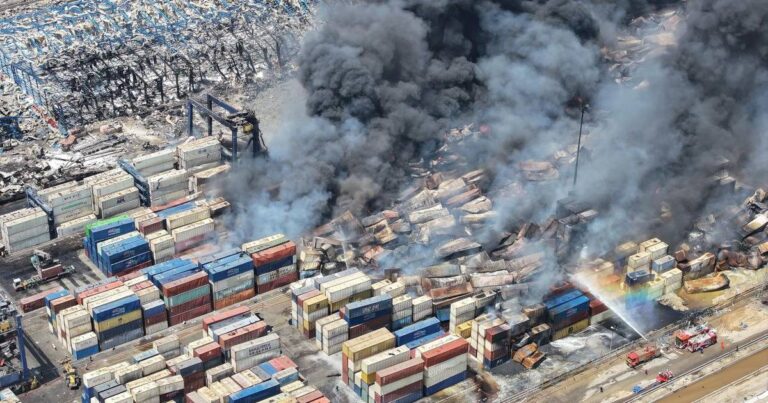Farmers Ignite Protests in Central Iran, Torching Key Pipeline Amid Escalating Water Crisis
Protests over water shortages in central Iran have intensified dramatically, particularly in Isfahan province, where demonstrators took significant action by setting fire to a vital water transfer station. This incident has severely disrupted the water supply line, affecting hundreds of thousands of residents in the neighboring Yazd province. The ongoing struggle for access to water resources, especially the Zayandeh Rud, has led to widespread unrest among the local farming community.
Footage obtained by Iran International reveals the chaos as smoke billowed from the pumping station early Saturday morning. This confrontation followed a rally where farmers voiced their frustrations over the lack of access to the Zayandeh Rud water, a resource they claim has been unjustly redirected to other areas. One farmer at the protest stated, “There’s been no release of water into the river despite repeated promises,” emphasizing the devastating impact of years without effective governmental action on local agriculture.
The farmers in the Isfahan region have long accused the government of mismanaging water resources, particularly accusing officials of diverting their water to provinces like Yazd. This has resulted in limited access to the Zayandeh Rud, which was historically essential for regional farming. The ongoing water crisis has sparked protests for years, often met with heavy-handed responses from security forces.
The recent disruption has exacerbated a severe water emergency in Yazd, which now faces what officials describe as red-level shortages for its population of over half a million. Mohammad-Javad Mahjoubi, the head of Yazd’s regional water authority, confirmed that the pipeline was completely shut down following the attack. He also warned that there is currently no timeline for when the water supply might resume.
Jalal Alamdari, the managing director of Yazd’s water utility, characterized the situation as critical. In response to the urgent water crisis, he announced the deployment of 13 mobile tankers throughout the province to assist residents. The residents of Isfahan, a province severely affected by water scarcity, have been vocal about their grievances, frequently rallying against what they perceive as the mismanagement of water resources by the Islamic Republic.
In some instances, these protests have been met with violent repression from Iranian security forces, further escalating the tensions surrounding the water crisis. The first major act of sabotage on the pipeline dates back to 2012, with tensions continuing to rise in the years since. Interior Minister Eskandar Momeni acknowledged the broader crisis last week, labeling water scarcity as a “serious national issue” and urging citizens to conserve water usage.
- Protests in Isfahan: Demonstrators are demanding access to Zayandeh Rud water.
- Impact on Agriculture: Farmers claim their livelihoods have been devastated by mismanagement.
- Yazd Water Emergency: The province faces severe shortages affecting over half a million people.
- Government Response: Authorities have deployed mobile tankers to assist residents amid the crisis.
- Ongoing Tensions: Protests have led to severe security responses, escalating the conflict.
The situation in Isfahan and Yazd serves as a stark reminder of the pressing water crisis in Iran, highlighting the urgent need for effective management and equitable distribution of water resources. The farmers’ plight reflects a broader struggle faced by many in the region, as they seek not only to protect their livelihoods but also to secure a fundamental resource essential for survival.
As the protests continue, the Iranian government faces mounting pressure to address the root causes of the water shortages. With the ongoing unrest, there is a critical need for dialogue and action to resolve the water crisis and ensure that the needs of the affected populations are met. The outcome of this situation may have far-reaching implications not only for the farmers and residents of Isfahan and Yazd but for the entire nation as it grapples with the impacts of climate change and resource management challenges.
The struggle for water in central Iran underscores the importance of sustainable practices and the need for a cooperative approach to resource management. As the protests evolve, it remains crucial for both the government and the citizens to engage in constructive discussions to find solutions that will alleviate the water shortages and restore access to vital resources.






